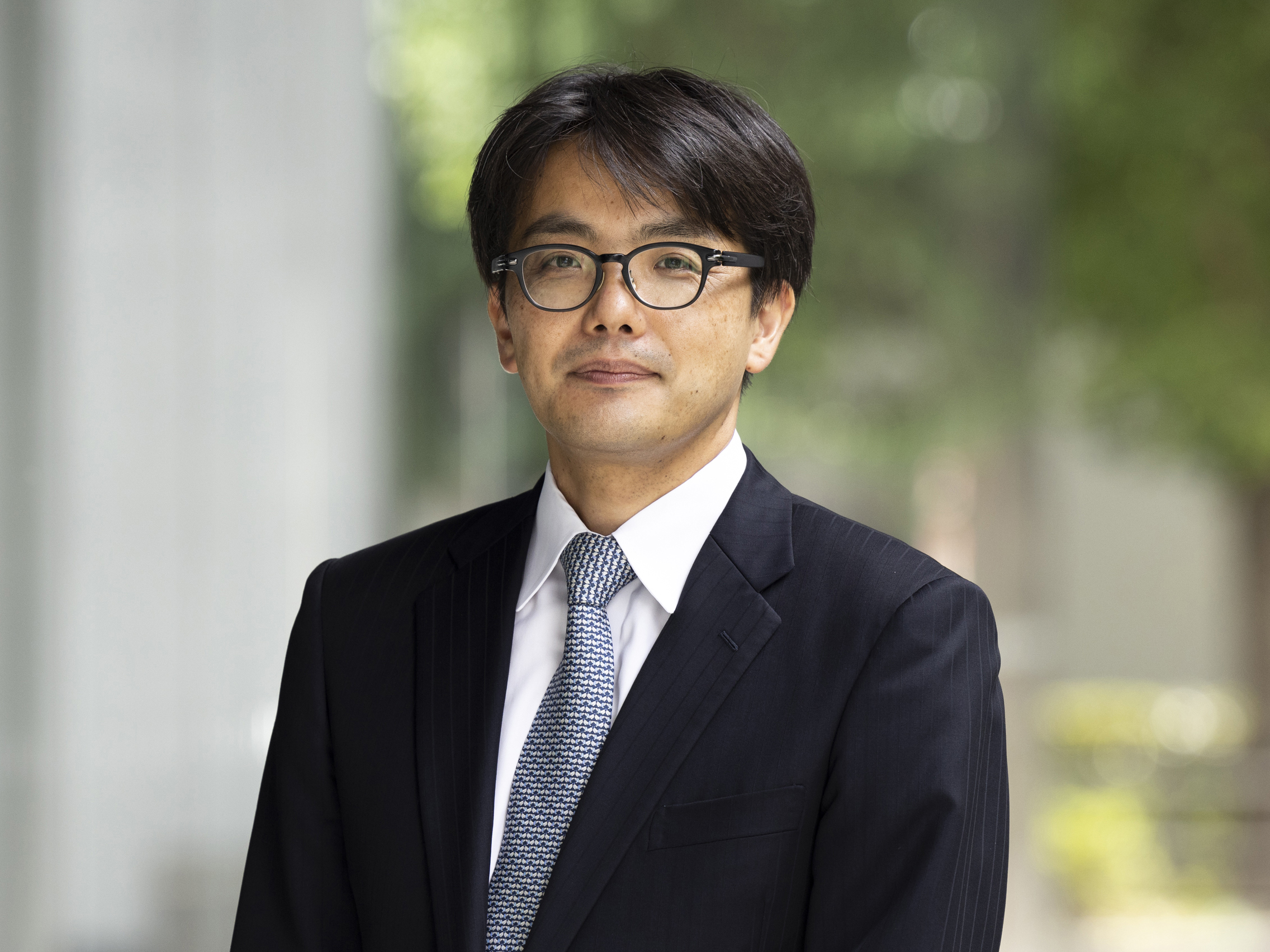We will contribute to achieving carbon neutrality by realizing “energy informatics,” a fundamental technology for energy infrastructure that efficiently operates multi-scale next-generation electric energy technologies, ranging from microscale energy storage devices to macroscale power grids, through information and statistical analysis technology.

Achieving a carbon-neutral society requires building a highly efficient power supply network. This next-generation power energy infrastructure consists of a multiscale power energy technology group, ranging from microscale energy storage devices (e.g., batteries) that can store and supply energy without loss to macroscale power grids that integrate a large amount of renewable energy (e.g., photovoltaic and wind power). Efficiently operating these next-generation technologies requires energy-control technology transcending scales and layers.
The Institute of Energy Informatics seeks not only to develop next-generation power energy technology at each layer, i.e., elemental technology development, but also to achieve comprehensive energy control from a bird’s-eye view of parallel connections in each layer, and vertical interconnections between layers by applying the latest informatics technologies.
Regarding the elemental technologies, we promote materials-science-based research for the enhancement of performance and functionality of secondary batteries that play a major role as off-grid power supply equipment for mobile devices and electric vehicles and capacitors that support IT systems as distributed auxiliary power sources. Additionally, to achieve integrated power energy control, we promote the creation of a database for effectively utilizing data groups accumulated for elemental technologies of each layer. We create an environment where researchers in Research Institutes with diverse specialties can access this database freely. Furthermore, we promote the use of databases that transcend the layers and existing research frameworks by the joint research among researchers, and establish the fundamental technology for advanced, next-generation energy infrastructure, i.e., energy informatics.
Masashi OKUBO (Professor, Faculty of Science and Engineering)
AMASAWA, Eri Associate Professor (tenure-track), Waseda Center for a Carbon Neutral Society
EGUCHI, Miharu Associate Professor (tenure-track), Faculty of Science and Engineering, School of Advanced Science and Engineering
HAYASHI, Yasuhiro Professor, Faculty of Science and Engineering, School of Advanced Science and Engineering
HIRADE, Yugo Junior Researcher (Assistant Professor), Advanced Collaborative Research Organization for Smart Society
KAJIYAMA, Satoshi Researcher (Associate Professor), Advanced Collaborative Research Organization for Smart Society
KONDO, Keiichiro Professor, Faculty of Science and Engineering, School of Advanced Science and Engineering
MIZOKAWA, Takashi Professor, Faculty of Science and Engineering, School of Advanced Science and Engineering
NAGATAKI, Atsuko Junior Researcher (Assistant Professor), Advanced Collaborative Research Organization for Smart Society
NAKAI, Hiromi Professor, Faculty of Science and Engineering, School of Advanced Science and Engineering
NAKANISHI, Takumi Junior Researcher (Assistant Professor), Advanced Collaborative Research Organization for Smart Society
OKAZAWA, Atsushi Assistant Professor (non-tenure-track), Faculty of Science and Engineering, School of Advanced Science and Engineering
OKUBO, Masashi Professor, Faculty of Science and Engineering, School of Advanced Science and Engineering
WAKAO, Shinji Professor, Faculty of Science and Engineering, School of Advanced Science and Engineering
ANDO, Yasunobu Advanced Collaborative Research Organization for Smart Society, Guest Researcher (Guest Associate Professor)
SUGANO, Yasuhito
Bldg. 62W B2-09B Waseda University, Okubo 3-4-1, Shinjuku-ku, Tokyo 169-8555
【E-mail】 [email protected]
【Tel】 03-5286-3166(EX:73-3190)
【WEB】 https://m-okubo.w.waseda.jp/en/index.html